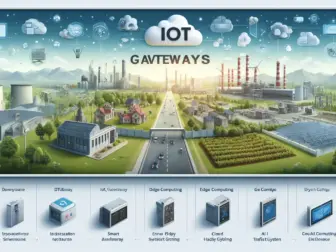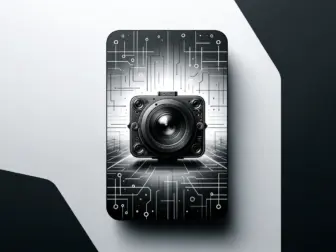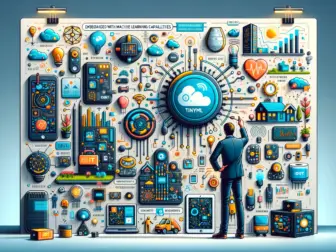Tag - IoT Applications
Blog , June 6, 2024 , AI Gateway, AI in IoT, Cloud Computing, Cloud-Edge Collaborative Gateway, CoAP, Data Acquisition Gateway, Data Transmission, Edge Computing, Edge Computing Gateway, Industrial IoT, IoT Applications, IoT Gateway, IoT Gateway Selection, Real-time Data Processing, Smart Gateway, Smart Traffic
Blog , February 26, 2024 , Edge AI, Edge Computing, internet of things, iot, IoT Applications, Machine Learning, Smart Devices, Tiny Machine Learning, TinyML, Ultra-Low Power ML
The Impact of IoT Applications on Business and Daily Life
The Impact of IoT Applications on Business and Daily Life
The Internet of Things (IoT) has revolutionized the way we live and work by connecting devices and enabling them to communicate and share data. IoT applications have permeated various aspects of our lives, from smart homes and wearable technology to industrial automation and smart cities. This technology has the potential to significantly impact businesses and individuals, improving efficiency, productivity, and convenience.
In the business world, IoT applications have become essential tools for streamlining processes, increasing operational efficiency, and reducing costs. Businesses can use IoT devices to monitor and track assets, analyze data in real-time, and automate tasks. For example, in the manufacturing industry, IoT sensors can be used to optimize production processes, prevent equipment failure, and ensure quality control. In the retail sector, IoT devices can help businesses track inventory levels, analyze customer behavior, and personalize marketing campaigns.
IoT applications also have a profound impact on daily life, making our homes smarter, safer, and more convenient. Smart home devices such as thermostats, lighting systems, and security cameras can be controlled remotely through smartphones or voice commands. These devices not only enhance comfort and convenience but also improve energy efficiency and home security. IoT technology has also been integrated into healthcare devices, allowing individuals to monitor their health conditions, track fitness goals, and receive personalized medical advice.
Furthermore, IoT applications play a crucial role in creating smart cities that are more sustainable, efficient, and responsive to the needs of residents. Cities can use IoT sensors to monitor traffic flow, optimize public transportation systems, and reduce energy consumption. Smart city initiatives also focus on improving public safety by deploying IoT devices for surveillance, emergency response, and disaster management. By harnessing the power of IoT technology, cities can enhance the quality of life for their residents and create a more sustainable urban environment.
Despite the numerous benefits of IoT applications, there are also challenges and concerns that need to be addressed. Issues such as data privacy, security vulnerabilities, interoperability, and scalability pose significant risks to the widespread adoption of IoT technology. Businesses and individuals must take proactive measures to protect their data, secure their devices, and comply with regulations to mitigate these risks.
In conclusion, IoT applications have the potential to transform the way we live and work, offering endless possibilities for innovation and improvement. By leveraging the power of IoT technology, businesses can enhance their operations, while individuals can enjoy a more connected, convenient, and efficient lifestyle. As the IoT ecosystem continues to expand and evolve, it is crucial for stakeholders to collaborate and address the challenges to ensure a safe and sustainable future for IoT applications.



